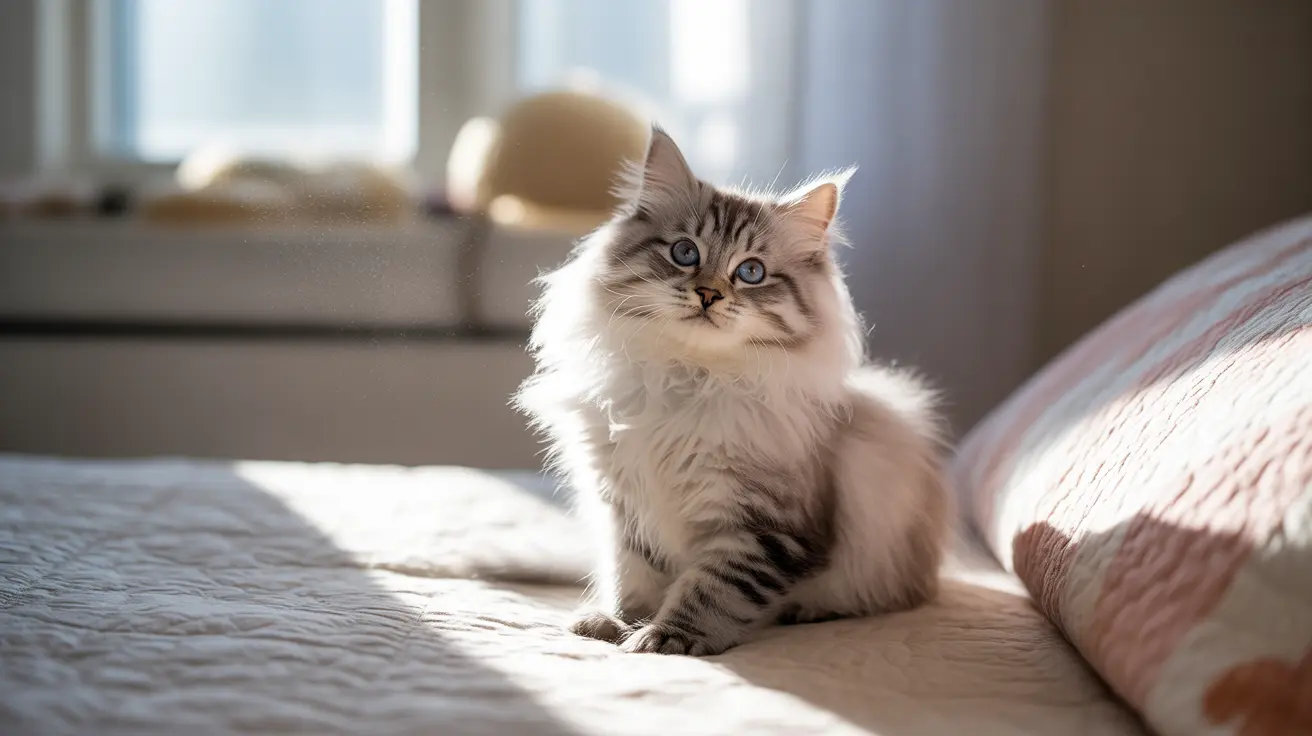Medical Causes: When Health Issues Lead to Inappropriate Elimination
Medical problems are often the primary reason cats suddenly start pooping on beds. If your cat has recently developed this behavior, a veterinary check-up should be your first step. Several health conditions can cause litter box avoidance:
Digestive System Problems
Conditions like inflammatory bowel disease (IBD), intestinal parasites, or constipation can make using the litter box painful. Your cat may associate this pain with the box itself, leading them to seek alternative locations.
Mobility Issues
Older cats or those with arthritis might find it difficult to climb into a high-sided litter box or maintain the proper position. Your bed, being softer and more accessible, might seem like an easier option.
Litter Box Problems: When the Bathroom Isn't Inviting
Sometimes the issue lies with the litter box setup itself. Cats are particular about their bathroom arrangements, and several factors could make them avoid their designated spot:
- Cleanliness issues (boxes should be scooped daily)
- Wrong box size or style
- Uncomfortable litter type
- Poor box location
- Insufficient number of boxes (especially in multi-cat households)
Environmental Stress and Changes
Cats are creatures of habit, and environmental changes can trigger stress-related elimination behaviors. Common triggers include:
- Moving to a new home
- Introducing new pets or family members
- Changes in household routine
- Renovation or redecorating
- Extended owner absence
Creating Solutions: Getting Your Cat Back on Track
Addressing inappropriate elimination requires a multi-faceted approach:
Immediate Steps
- Schedule a veterinary examination
- Clean affected areas thoroughly with enzyme-based cleaners
- Evaluate and improve litter box conditions
- Consider using cat attractant products in the litter
Long-term Solutions
- Maintain consistent daily routines
- Provide environmental enrichment
- Use calming aids like Feliway if stress is a factor
- Consider consulting a feline behaviorist for persistent issues
Frequently Asked Questions
Why did my cat suddenly start pooping on my bed instead of the litter box?
Sudden changes in elimination behavior often indicate a medical issue or significant stress. Schedule a veterinary check-up to rule out health problems, and evaluate recent changes in your home environment that might be causing stress.
Could a medical problem be causing my cat to avoid the litter box and poop on my bed?
Yes, medical issues are a common cause of inappropriate elimination. Conditions like IBD, arthritis, urinary tract infections, and other health problems can make using the litter box uncomfortable or painful.
How can changes in the home environment make my cat poop on the bed?
Cats are sensitive to environmental changes. New pets, moving homes, schedule changes, or even rearranging furniture can cause stress-related elimination issues. Your bed, carrying your familiar scent, might feel like a safe space.
What litter box issues might lead a cat to choose my bed as a bathroom?
Dirty litter boxes, uncomfortable litter types, poor box location, or insufficient boxes in multi-cat households can all lead to litter box avoidance. Ensure boxes are clean, accessible, and appropriate in size and number.
How can stress or anxiety make my cat poop on my bed, and what can I do to help?
Stress can disrupt normal elimination habits. Help your cat by maintaining routine, providing safe spaces, using calming products, and ensuring adequate environmental enrichment. For severe cases, consult a veterinary behaviorist.
Remember, with patience, understanding, and the right approach, this behavior can usually be resolved. The key is identifying the underlying cause and addressing it appropriately, while maintaining a caring and supportive environment for your feline companion.






